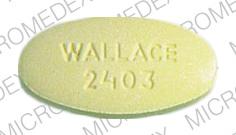Soma Compound with Codeine and Alcohol/Food Interactions
There are 2 alcohol/food/lifestyle interactions with Soma Compound with Codeine (aspirin / carisoprodol / codeine).
Codeine Food/Lifestyle
Major Food Interaction
Consumer information for this interaction is not currently available.
GENERALLY AVOID: Alcohol may potentiate the central nervous system (CNS) depressant effects of opioid analgesics. Concomitant use may result in additive CNS depression and impairment of judgment, thinking, and psychomotor skills. In more severe cases, hypotension, respiratory depression, profound sedation, coma, or even death may occur. In addition, alcohol may affect opioid release from sustained-release formulations.
GENERALLY AVOID: Grapefruit or grapefruit juice may increase the plasma concentrations of opioid analgesics by inhibiting CYP450 3A4-mediated metabolism of these agents, although the interaction has not been studied. In general, the effect of grapefruit juice is concentration-, dose- and preparation-dependent, and can vary widely among brands. Certain preparations of grapefruit juice (e.g., high dose, double strength) have sometimes demonstrated potent inhibition of CYP450 3A4, while other preparations (e.g., low dose, single strength) have typically demonstrated moderate inhibition. Pharmacokinetic interactions involving grapefruit juice are also subject to a high degree of interpatient variability, thus the extent to which a given patient may be affected is difficult to predict.
MANAGEMENT: Patients should not consume alcoholic beverages or use drug products that contain alcohol during treatment with opioid analgesics. Any history of alcohol or illicit drug use should be considered when prescribing an opioid analgesic, and therapy initiated at a lower dosage if necessary. Patients should be closely monitored for signs and symptoms of sedation, respiratory depression, and hypotension. Due to a high degree of interpatient variability with respect to grapefruit juice interactions, patients treated with opioid analgesics should preferably avoid the consumption of grapefruit and grapefruit juice.
Carisoprodol Food/Lifestyle
Moderate Food Interaction
Consumer information for this interaction is not currently available.
GENERALLY AVOID: Alcohol may potentiate some of the pharmacologic effects of CNS-active agents. Use in combination may result in additive central nervous system depression and/or impairment of judgment, thinking, and psychomotor skills.
MANAGEMENT: Patients receiving CNS-active agents should be warned of this interaction and advised to avoid or limit consumption of alcohol. Ambulatory patients should be counseled to avoid hazardous activities requiring complete mental alertness and motor coordination until they know how these agents affect them, and to notify their physician if they experience excessive or prolonged CNS effects that interfere with their normal activities.
Switch to professional interaction data
Soma Compound with Codeine drug interactions
There are 806 drug interactions with Soma Compound with Codeine (aspirin / carisoprodol / codeine).
Soma Compound with Codeine disease interactions
There are 28 disease interactions with Soma Compound with Codeine (aspirin / carisoprodol / codeine) which include:
- coagulation
- porphyria
- impaired GI motility
- infectious diarrhea
- prematurity
- asthma
- acute alcohol intoxication
- drug dependence
- hypotension
- intracranial pressure
- respiratory depression
- gastrointestinal obstruction
- GI toxicity
- renal dysfunction
- Reye's syndrome
- drug dependence
- renal/liver disease
- adrenal insufficiency
- liver disease
- renal dysfunction
- seizure disorders
- urinary retention
- arrhythmias
- biliary tract disease
- anemia
- dialysis
- G-6-PD deficiency
- hepatotoxicity
More about Soma Compound with Codeine (aspirin / carisoprodol / codeine)
- Check interactions
- Compare alternatives
- Reviews (6)
- Drug images
- Side effects
- Dosage information
- During pregnancy
- Drug class: skeletal muscle relaxant combinations
Related treatment guides
Drug Interaction Classification
| Highly clinically significant. Avoid combinations; the risk of the interaction outweighs the benefit. | |
| Moderately clinically significant. Usually avoid combinations; use it only under special circumstances. | |
| Minimally clinically significant. Minimize risk; assess risk and consider an alternative drug, take steps to circumvent the interaction risk and/or institute a monitoring plan. | |
| No interaction information available. |
See also:
Further information
Always consult your healthcare provider to ensure the information displayed on this page applies to your personal circumstances.


